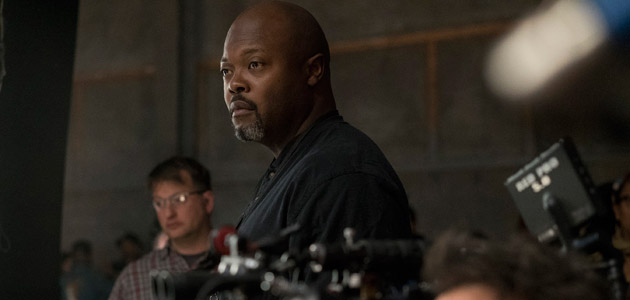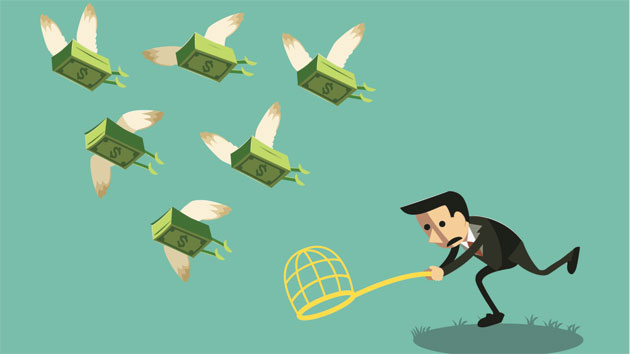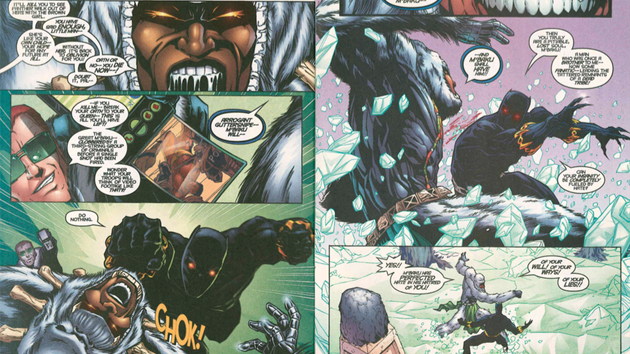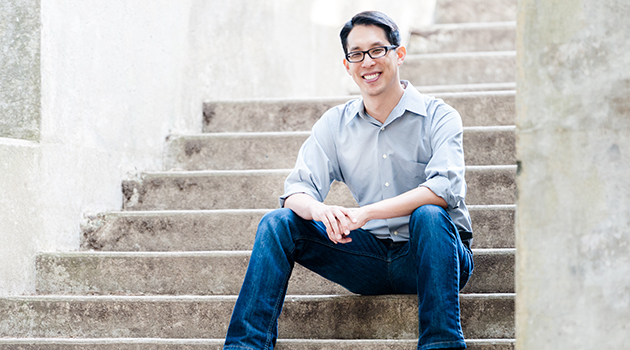In the bustling streets of Harlem, plagued with crime and political corruption, a neighborhood hero emerges. Bald and stocky, Luke Cage is a brother who roams the neighborhood in a dark hoodie, Carhartt gear, and Timberland boots. He works odd jobs to make rent after a time behind bars for a crime he didn’t commit, and he finds refuge in a barbershop known to many.
But the man has a secret that he eventually could no longer hide: He’s bulletproof. Indestructible. Into a zeitgeist thick with protests over police brutality—and with emotions fueled by the sights and sounds of bullets penetrating black men’s bodies—comes Marvel Comics’ first black superhero to get a standalone series. Luke Cage, which rolls out September 30 on Netflix, is a departure from Marvel’s previous street-level series, Daredevil and Jessica Jones, in the way it focuses on the problems faced by the black community.
Rich with homages to the character’s comic-book persona and the black experience, from the deep soundtrack to barbershop banter over the ’90s-era New York Knicks basketball team, Luke Cage is what showrunner Cheo Hodari Coker describes as a modern hip-hop western steeped in the mix of grittiness and elegance that defined New York City hip-hop during the 1990s. Coker recently joked that he “pretty much made the blackest show in the history of TV.” It’s not just the show. His writers room is several shades darker than what you’ll typically find in Hollywood.
Coker’s obsession with comics became a thing starting in sixth grade, when a friend introduced him to X-Men at lunch one day. “I’ve always been a geek,” he says. “If you’re a geek about something, you’re a geek about everything.” As we spoke, Coker ruffled through his comic book collection in his new Seattle office to find the issue in question: “The Uncanny X-Men” No. 173. “Oh my God, I can’t believe I saved this stuff,” he says.

Coker’s life was also transformed, he told me, by his experiences in the 1990s. As a hip-hop journalist turned television writer, he interviewed the likes of Prince (“smart and crazy like a fox”) and Notorious B.I.G., whose life story Coker would eventually turn into a book and film Notorious. Before Luke Cage on the screen, Coker also wrote for the dramas Ray Donovan and Southland.
When Coker pitched the new series, he envisioned a Luke Cage that was “Belly meets City of God as written by the staff of The Wire.” What emerged, he says, is a hero at first reluctant to step into the limelight in order to protect his community. We first spotted Cage (Mike Colter) in Jessica Jones, working as a bartender in Hell’s Kitchen. Now, with the help of others, he has to dismantle an organized crime empire built by Cottonmouth (Mahershala Ali), a gangster with a musical past who was thrust into the game at an early age. In turn, Cottonmouth and his cousin Mariah, a corrupt city politician played by Alfre Woodard, aim to grow their local stranglehold.
We encounter a flicker of Coker’s past—a portrait of Biggie, crown atop his head—on the wall of Cottonmouth’s swanky nightclub lair, which is also the venue for stellar performances from the likes of Faith Evans and Raphael Saadiq. In the show’s early drafts, Coker says, the painting was supposed to be Jean-Michel Basquiat’s “Charles the First,” which includes the phrase, “Most young kings get thier [sic] head cut off.” Due to copyright hassles, the producers went with Biggie instead, but the Basquiat line remains a fitting metaphor for Cottonmouth’s journey, Coker notes.
Luke Cage starts out slowly, but builds, over the course of the season, into a raw representation of street-level heroism, sparing us the corniness of, say, Supergirl. Coker’s Cage, whose comic-book persona was born of the 1970s Blaxploitation era, is now a charismatic and complicated man who bears the realistic burden of simply wanting to protect those close to him.
Mother Jones: What drew you to the Luke Cage story?
Cheo Hodari Coker: I loved Daredevil. I loved Jessica Jones. I would have loved to have worked on either of those shows. They were looking for somebody to run Luke Cage, and I was familiar with the character and knew I had the opportunity to tell his story from the ground up. You feel like you’re Sean Connery auditioning for roles, and then all of a sudden you hear about this Ian Fleming character named James Bond. You’re like, wait a minute! There’s something about the description of this guy. Give me a shot.
MJ: Tell me about your approach to using hip-hop for the show?
CHC: A lot of TV shows use hip-hop. It’s become the greatest marketing angle. For me, it was about having very specific hip-hop be the influence. Wu-Tang always builds a world. Gang Starr builds a sonic world. For fans of ’90s hip-hop, it’s just compelling. There was a certain grittiness, but also a sophistication and elegance of New York hip-hop. Because this a New York story, I wanted to infuse it with that. Because it’s so specific to an experience and an era, it would give everything a supercharge. It’s no different from the doo-wop of the ’50s or the soul, and rock and roll of the ’60s and ’70s gave Goodfellas a specific jolt. You just know that Martin Scorcese went into his record collection and just went crazy. [Laughs.]
MJ: Your writing crew is unusually brown-skinned: Four black men, two black women, and then two white writers. How did your past experiences in writers’ rooms inform the make-up of this one?
CHC: In almost every writers’ room I’ve been in, I’m only one of two people of color. It isn’t like there’s some committee saying, “Let’s keep people out.” That’s not how it happens. Writers’ rooms are basically a combination of who studios approve and how the powers that be—whether it’s the showrunners or other people—build their rooms. The reason the numbers are so low is because so few writers of color have gotten opportunities in the past. Part of what it is is exposure.
It’s not like abject racism as much as it is that everybody looks or thinks a certain way—that there’s no diversity in opinion. That’s why you want a diverse writers’ room: You want to think about things that you might not have thought of before. That’s all it is, honestly. This story is a black story and yes, having people familiar with the African American experience is helpful, but the fact of the matter is, the writers, because of the shows they worked on and their experiences, were perfect for this show.
MJ: What’s the significance of having a bulletproof black man depicted on television at a time of ongoing racial tension?
CHC: We wanted a show that worked on geek comic terms, but at the same time didn’t run away from social relevance. It wasn’t like we were setting out to be the Black Lives Matter show! It’s just that circumstances for what we were writing in 2015—it’s now at the forefront of everybody’s minds. The fact all these things are happening was not by design, and frankly, I wish a lot of these things weren’t happening. I would much rather that police brutality and these shootings be a thing of the past.
That’s the thing: We realize now we don’t shirk from the politics of the show or the story that we are telling. But at the same time, we’re not limited by it. We’re like the music of Bob Marley. If you really know what the lyrics are about, it’s about deep politics and black pride and overcoming obstacles. But also, at the same time, he’s the world’s greatest lover. That’s always been the power of comic books: You’re able to talk about deep, complex, human truths, but when you shroud it with superpowers, you do it in a way where people don’t bring their politics into it. Through this show, we’re able to talk about a lot of things. Don’t get it twisted. We’re a comic-book show, and we’re a fun, funky-ass show.













